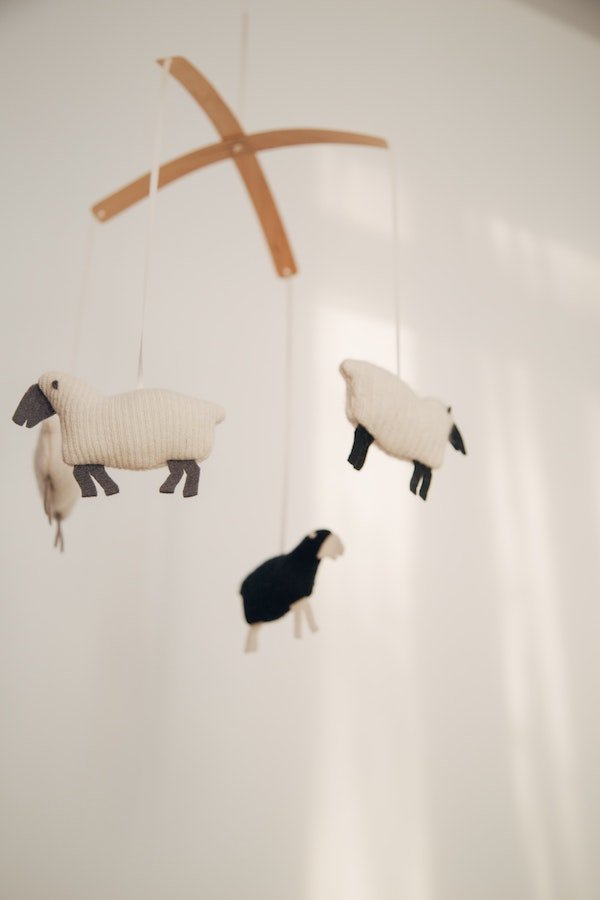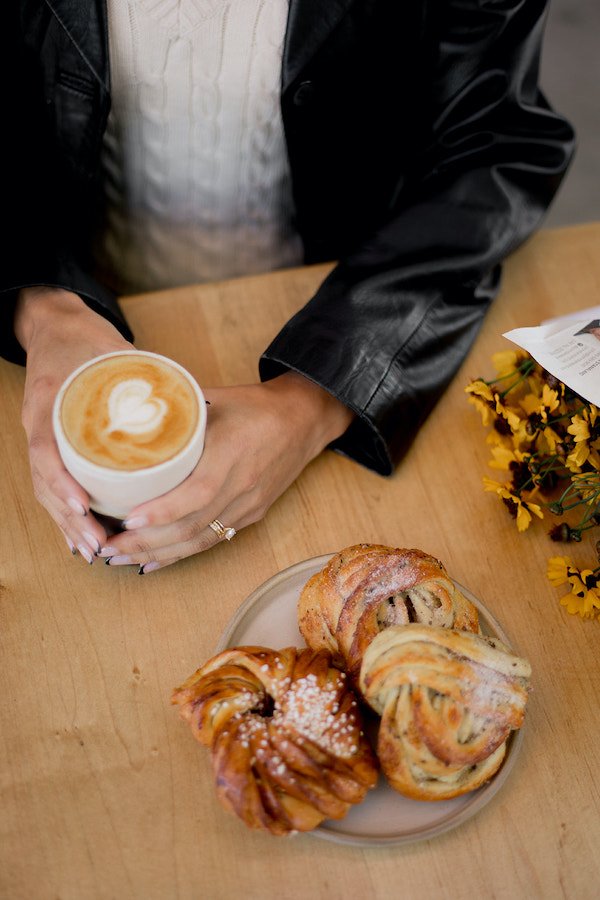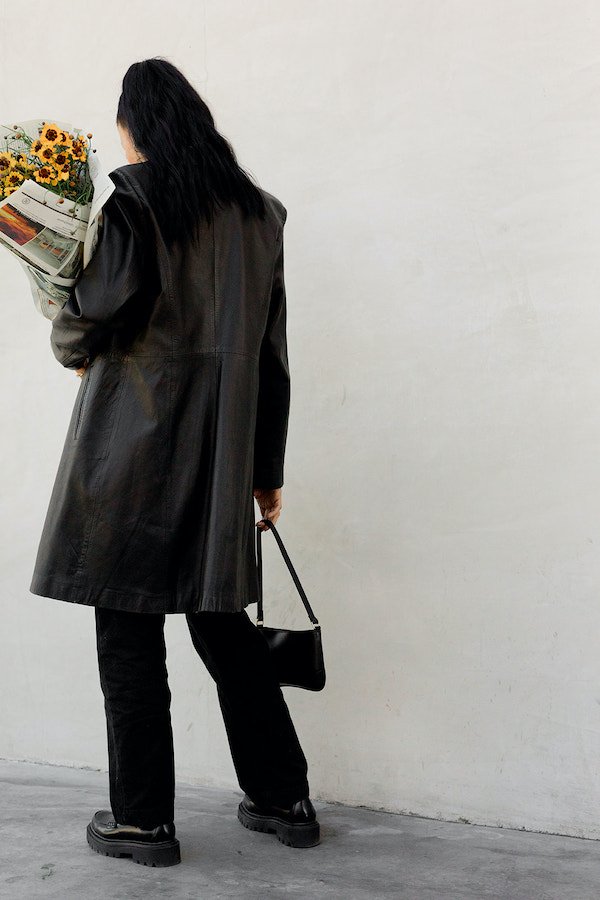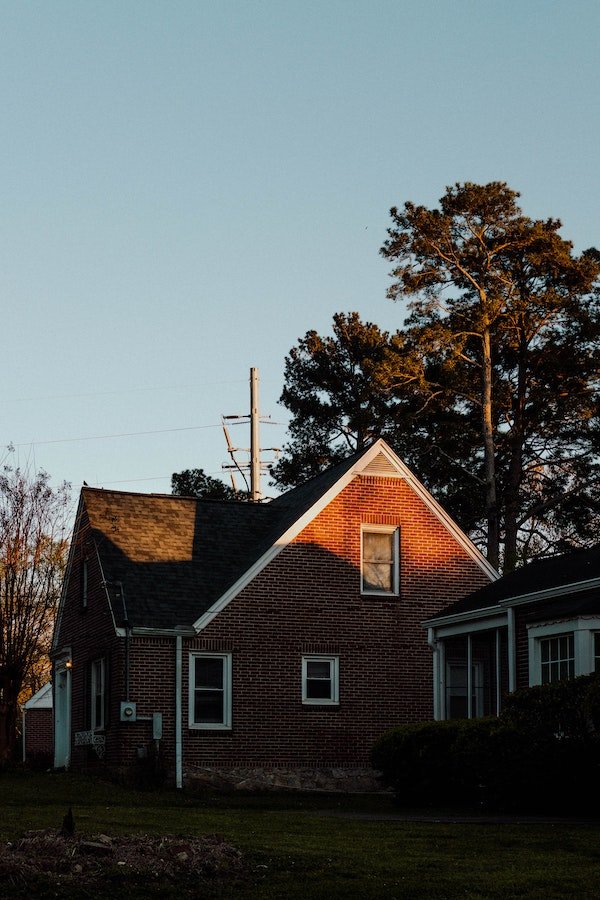
My Babies Aren’t Babies Anymore
This essay was reader-submitted for our Reader Essay Series on themes of motherhood, mental health, and personal transformation.
My husband dismantled our youngest child’s crib as a weekend house project. Our daughter was one month away from turning two, our bottom bunk waited in cheerful mermaid sheets for weeks, and she’d recently launched herself over the crib rails during a particularly energetic tantrum, safely landing on the carpeting below. It was time.
The realization had built for months. During an attempt to register my daughter for a baby swim class, it took 20 minutes of patient suggestions from the staff—“other classes, other times”—before what they were really trying to say sunk in: My baby, at nearly two, was no longer a baby.
“My baby, at nearly two, was no longer a baby.”
Her older brother’s transition from crib to bed happened on day one of an international move from Virginia to Japan for my husband’s work. From the moment our son discovered he could climb out of the travel crib, nothing would hold him in again. He slept huddled next to us in guest beds and hotel rooms, his feet lodged squarely between my husband’s shoulder blades, his arms flung round my face. By the time we’d moved into our new home weeks later and settled him into a bed of his own, it was a relief. Besides, we hoped to have another child. Better to transition him to a bed happily, before the next baby came.
The crib was a hand-me-down. The acquaintance who sold it to us warned that its drop-down style was no longer manufactured, deemed too risky. We weren’t concerned; it had worked well enough for their three children. I similarly glossed over the wife’s portentous emotion as we made plans for my husband to pick it up. “Don’t mind me if I cry when he takes it,” she wrote.
Delighted to have found the perfect white furniture to complete my meticulously plotted vision for the nursery, I wrote back, “I might cry when he sets it up!”
Back then, a baby was a mere construct of our imaginations that often didn’t seem quite real until the monthly doctor’s visits. Would our son inherit his father’s love for Dodgers baseball or mine for reading? Would he someday get a brother or a sister? Would they grow up healthy? Happy?
“These are our kids. These are our lives, unfolding one day at a time.”
Now both our children exist fully, with pantry-climbing, sword-fighting personalities all their own, and the door to new possibilities for our family is closing. These are our kids. These are our lives, unfolding one day at a time.
And while these days are often interminable, the years have indeed been too short. Over its lifetime, that crib cradled a total of five babies, including mine, safely through the many long nights and too-brief naps. Its precarious drop-down side finally veered into true ricketiness, and so my husband nailed it down and flipped it against the wall. There’s no next baby on the horizon to inherit the bed—our daughter is our last child, as far as science and medical technology can guarantee.
Our time for cribs is over, and now I am the one telling my husband to ignore the tears.
Outgrowing the need for cribs is only the latest of many lasts we’ve reached as our children march from infancy to childhood and onward. As their lives continue as a series of firsts—steps, words, days of school, loves—mine becomes defined by these lasts, so many of which are impossible to foresee. The last time my son asked to be picked up, or needed to hold my hand crossing the street. The last autumn we’ll all be at home together before school and friends and their lives carry them away.
The crib’s inevitable end is also not my husband’s first foray into partnering with a sentimental mother. Long before our enthusiastic son leapt over his Pack ‘n Play’s railings into the greater beyond of his bedroom, he was a nine-pound newborn fast outgrowing his earliest, tiniest outfits, a fact I came to terms with on the floor of our shower, where my husband discovered me curled up one week postpartum.
“What’s wrong?!” he asked, banging on the glass door in alarm.
I looked up, tears pouring down my face alongside the water. “He. Doesn’t. Fit. In. His. Puppy. Outfit. He’s already too biiiiiiiiiiiiiiiig,” I wailed and folded my head back over my knees as fresh sobs wracked my body over the swift passage of my son’s very first stage of life.
My husband backed away slowly, returned with a glass of wine, and didn’t cast judgment when I toweled off, stuffed our baby into those brand-new puppy pajamas, and took dozens of photographs to mark the occasion.
Mingled with the sadness as our children grow is gratitude, of course. I am thankful beyond mere words for every milestone these healthy, happy kids surpass. Milestones that many—too many—do not.
“Mingled with the sadness as our children grow is gratitude, of course.”
The loss of the crib comes with its own joy too. For the past five years, I’ve awoken only to the cries of a child in need, constant and insistent as any alarm clock.
Since the crib’s removal, we awake instead to laughter. Freed from the confines of her railed baby bed, my daughter stirs in the bottom bunk and (we suspect) wakes her brother in the top to play. I hear footsteps thump along the hallway. Whispered giggles outside our door announce their presence before they burst into the room, our eyes screwed tightly shut in feigned slumber, the better to be ‘surprised’ when they leap upon us.
Every second of their childhood has proven all the old adages are true: better days are always ahead.
It’s often hard to recognize this in the moment. The last night any of my babies slept in a crib arrived without fanfare. There were tears, though they were quickly brushed aside in the onslaught of our elaborate bedtime routine and the many songs and stories and last glasses of water it requires to put two small kids happily to bed.
“The last night any of my babies slept in a crib arrived without fanfare.”
Then the night was quickly gone, and with no photographs at all and the turn of a couple screwdrivers, so too were the rails and sides that kept them safe in slumber, all these years.
Caught up in DIY momentum, my husband offered to change out the feet of the rocking chair too while his tools were out, to keep small fingers from being crushed beneath, and walls and windows safe from children certain to use the rocker to blast off into the stratosphere of the room.
I looked at the chair, where I nursed both children, where I dozed in exhausted, dreamless fits against its sturdy winged sides, and where I still snuggled them daily for storytime. I shook my head.
I wanted to gather up the chair – and their childhoods – and hold it all close, hold onto this time in our lives a little longer. “Not the chair,” I told him, tearing up once again. “Not yet.”
My husband, possibly recalling my infamous shower scene or any of the tears and joy that come with bare-knuckling through the terror of parenthood together and raising beloved children safely, nodded and packed up his toolbox.
The crib may be gone, but the chair is safe for now.
Kate Lewis (@katehasthoughts) is an essayist who often writes about the intersection of parenting and feminism. She lives in Coastal Virginia with her husband, two elementary aged children, and a borrowed dog. Her work has been featured in The New York Times, The Washington Post, TODAY, Romper, POPSugar, and more, and she is the recipient of the Perry Morgan Fellowship in creative writing at Old Dominion University in Virginia, where she is working toward an M.F.A. in non-fiction. She serves as the book critic for Military Families Magazine, a non-fiction reader for Barely South Review, and is hard at work on a memoir in essays.




